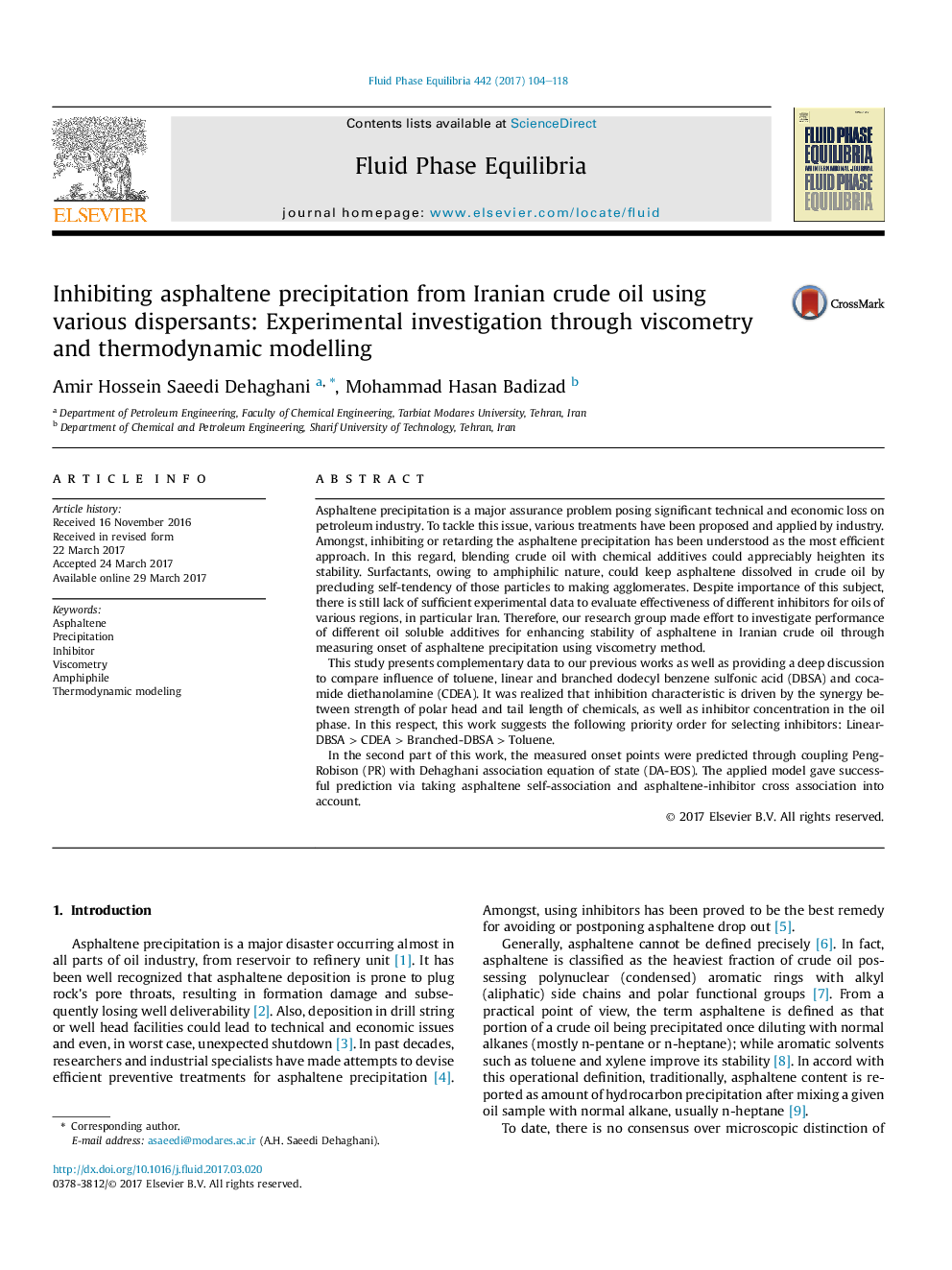| Article ID | Journal | Published Year | Pages | File Type |
|---|---|---|---|---|
| 6473293 | Fluid Phase Equilibria | 2017 | 15 Pages |
Asphaltene precipitation is a major assurance problem posing significant technical and economic loss on petroleum industry. To tackle this issue, various treatments have been proposed and applied by industry. Amongst, inhibiting or retarding the asphaltene precipitation has been understood as the most efficient approach. In this regard, blending crude oil with chemical additives could appreciably heighten its stability. Surfactants, owing to amphiphilic nature, could keep asphaltene dissolved in crude oil by precluding self-tendency of those particles to making agglomerates. Despite importance of this subject, there is still lack of sufficient experimental data to evaluate effectiveness of different inhibitors for oils of various regions, in particular Iran. Therefore, our research group made effort to investigate performance of different oil soluble additives for enhancing stability of asphaltene in Iranian crude oil through measuring onset of asphaltene precipitation using viscometry method.This study presents complementary data to our previous works as well as providing a deep discussion to compare influence of toluene, linear and branched dodecyl benzene sulfonic acid (DBSA) and cocamide diethanolamine (CDEA). It was realized that inhibition characteristic is driven by the synergy between strength of polar head and tail length of chemicals, as well as inhibitor concentration in the oil phase. In this respect, this work suggests the following priority order for selecting inhibitors: Linear-DBSAÂ >Â CDEAÂ >Â Branched-DBSAÂ >Â Toluene.In the second part of this work, the measured onset points were predicted through coupling Peng-Robison (PR) with Dehaghani association equation of state (DA-EOS). The applied model gave successful prediction via taking asphaltene self-association and asphaltene-inhibitor cross association into account.
